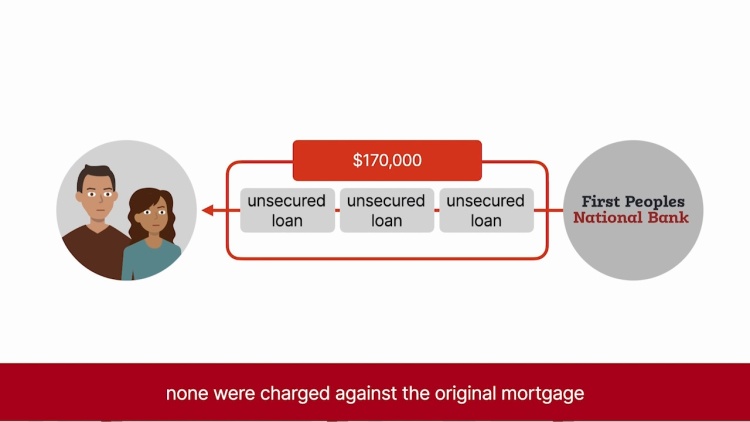In re Lanza
United States Bankruptcy Court for the Eastern District of Pennsylvania
51 B.R. 125 (1985)
- Written by Ryan Hill, JD
Facts
First Peoples National Bank (First Bank) (plaintiff) filed proof of claims in a bankruptcy proceeding against Lanza (defendant). The first proof of claim was based on a transaction in which Lanza conveyed a mortgage on his real estate in exchange for a construction loan to improve that property. The mortgage was executed for $200,000, though First Bank only advanced Lanza $125,000 at settlement. Through a series of unsecured loans, First Bank proceeded to advance an additional $170,000 to Lanza. None of these unsecured loans were charged against the original mortgage. Lanza improved his real estate with the loans. Because First Bank’s auditors were critical of these loans, First Bank granted a new $350,000 mortgage to Lanza on the same real property that was now improved. Approximately $125,000 of that money was used by Lanza to satisfy the original mortgage, and $177,520 was used to discharge the unsecured debt, plus the accumulated interest. First Bank filed and recorded the mortgage. First Bank provided several possible figures for what it believed Lanza owed on the mortgage. Lanza objected to the claim filed by First Bank as to the amount of the mortgage still owed because of First Bank’s poor documentation.
Rule of Law
Issue
Holding and Reasoning (Goldhaber, J.)
What to do next…
Here's why 907,000 law students have relied on our case briefs:
- Written by law professors and practitioners, not other law students. 47,100 briefs, keyed to 996 casebooks. Top-notch customer support.
- The right amount of information, includes the facts, issues, rule of law, holding and reasoning, and any concurrences and dissents.
- Access in your classes, works on your mobile and tablet. Massive library of related video lessons and high quality multiple-choice questions.
- Easy to use, uniform format for every case brief. Written in plain English, not in legalese. Our briefs summarize and simplify; they don’t just repeat the court’s language.





